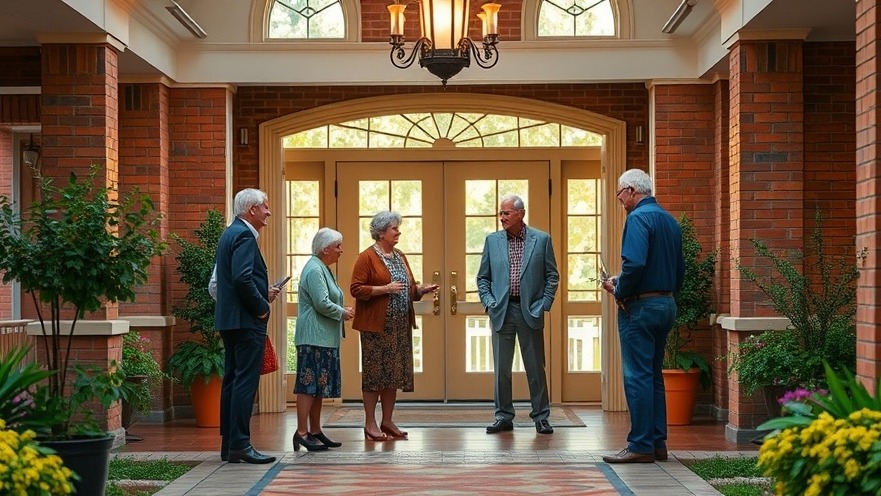
Understanding the Importance of Medicaid for Seniors
Medicaid serves as a vital safety net for millions of seniors and people with disabilities, providing essential health care services that often make the difference between independence and institutionalization. As a program jointly funded by the federal and state governments, Medicaid is crucial for older adults who may face escalating medical needs in their twilight years. By covering long-term care, home health aides, and more, Medicaid supports the dignity and quality of life for these vulnerable populations.
The Current Landscape of Medicaid
In recent years, state-level initiatives have threatened to reduce Medicaid funding, posing a challenge for many seniors who rely on the program for their healthcare needs. According to a report from the Center on Budget and Policy Priorities, more than 12 million older adults depend on Medicaid nationwide for necessary services. As policymakers debate budget allocations, the impact of potential cuts is being closely examined, with advocates urging them to consider the consequences for seniors’ well-being.
Historical Context: A Lifeline Established
Medicaid was established in 1965 as part of the Social Security Amendments, initially designed to aid low-income individuals, including seniors. Over the decades, the program has evolved to include essential services critical for aging populations. Understanding this history is crucial, as it frames the current dialogue on Medicaid's sustainability and expansion. Highlighting its roots provides valuable context for why protecting the program matters now more than ever.
The Societal Value of Medicaid
Medicaid is not just about healthcare—it embodies a societal commitment to caring for some of our most vulnerable citizens. It fosters a sense of community and support, allowing seniors to age in place and avoid institutional settings whenever possible. Moreover, this rich network brings together families and communities to fund healthcare solutions that cater to the specific needs of elderly residents.
Potential Consequences of Medicaid Cuts
If policymakers decide to trim Medicaid funding, the ramifications could be severe. Studies reveal that significant cuts could result in limited access to vital health services, increased strain on family caregivers, and a greater reliance on emergency services. A report from the National Council on Aging indicates that such funding reductions could force many older adults into nursing homes, stripping away their independence and exacerbating existing health disparities.
How to Advocate for Medicaid
Advocacy plays a key role in shaping the future of Medicaid. Seniors and allies can take meaningful action by contacting their representatives. A template letter (available through various advocacy organizations) can guide individuals on how to frame their concerns effectively. Personal anecdotes about the benefits of Medicaid can be powerful persuaders, illustrating not only the need for funds but also the human element behind policy decisions.
Taking Action: Your Role in Protecting Medicaid
Every voice counts, and as a senior, your perspective on Medicaid is invaluable. Engage with your community, attend local forums, and speak out about why Medicaid matters in your life. Initiatives like Justice in Aging provide excellent resources, including template letters and contact information for advocacy groups working tirelessly to defend these services.
Common Misconceptions About Medicaid
Many fallacies surround Medicaid, leading to confusion about who does and does not qualify. It's essential to dispel myths, such as the idea that only low-income seniors are eligible. Understanding the diverse range of services and the populations they serve can empower individuals in their advocacy efforts and help ensure that Medicaid remains accessible for all who need it.
Conclusion: Why Protecting Medicaid Matters
Medicaid is more than just a healthcare program; it’s a lifeline for many seniors and people with disabilities. As discussions surrounding funding and policy continue, it is critical to wield the power of advocacy and informed dialogue. By participating and voicing your concerns, you contribute to protecting and possibly enhancing a program that plays an integral role in many lives.
We encourage you to take action—consider writing a letter to your local representatives using the templates available, and share your personal stories of how Medicaid has impacted your life or that of someone you know. Let’s ensure that the voices of seniors are heard and respected in this vital conversation.
 Add Row
Add Row  Add
Add 




Write A Comment